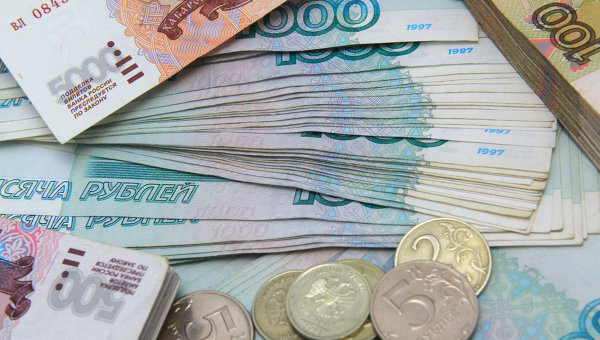Ruble/rial trade detrimental to Iran’s interest

By Sara Rajabova
Having long suffered from international sanctions over its nuclear energy program, Iran has been looking for ways to dodge what Iranians have frequently referred to as “cruel sanctions”.
The EU, U.S. and UN sanctions against Iran’s banking system have forced the country to barter trade and use the national currency while trading.
Russia, which was also heavily hit by a series of international sanctions, has been determined to ditch the U.S. dollar and euro in its bilateral trade transactions.
The Islamic Republic has recently launched the ruble/rial trade with Russia. Gholam Reza Panahi, the deputy governor for currency affairs of Bank Melli of Iran said in late April that a mechanism that enables Iranian exporters to transfer payments in rubles from their Russian clients to Iran through the Moscow-based Mir Business Bank has been established.
Iran also said it plans to establish joint rial accounts for Russian banks in Iran that would enable Iranian exporters to receive payments in rials for their exports to Russia.
Moreover, Iran is preparing to launch a trade mechanism with Turkey in which the two countries would settle payments in their own local currencies.
While some Iranian lawmakers hailed such move in view of evading international sanctions, experts believe that such a mechanism to trade in local currencies would mostly benefit other countries and not necessarily Iran.
Commenting on the ruble/rial trade between Iran and Russia, Kamran Dadkhah, a professor of economics at Northeastern University in Boston, Massachusetts told AzerNews that such a deal is beneficial to Russia and detrimental to Iran’s interests.
“This is a deal between un-equals. Russia will take advantage of the situation to impose conditions on Iran and will try to sell its low quality products to Iran,” he said.
Dadkhah considers that the best option for Iran is to come to terms with the United States and for lifting of all sanctions.
He noted that after Iran rejoins the international economy it can benefit from the international monetary and financial system.
Iran and the P5+1 group countries reached a framework nuclear agreement on April 2 that raised hopes for achieving a comprehensive nuclear deal by June 30 and thus see all economic sanctions against Iran lifted, including all restrictive measures against the country’s banking system.
Albert Beghzian, an Iranian economist, also believes that the mechanism to trade in local currencies would not be beneficial to Iran.
“They easily sell their goods to Iran but when it comes to buying Iran's goods, they try to get a good bargain,” the Persian-language newspaper Aftab-e Yazd quoted Beghzian as saying.
The experts also consider this mechanism as ineffective and risky simply because of fluctuations in the currency of other countries.
“Since sanctions on Iran has meant that the country cannot use the International Banking System on one side, and on the other side the ruble depreciated to one third, Iranian tradesmen lost their risk power in conducting relations with their Russian counterparts,” Mohammad Lahouti, vice president of Iran Export Confederation and member of the Tehran Chamber of Commerce told Trend.
He said Iran-Russia trade transactions are in the form of timed payments, maintaining that this again increases the risk of trade since Iranian tradesmen could not be sure what changes the ruble would undergo from the time they conducted the trade to the time of payment.
The Russian ruble has dramatically fallen following sanctions imposed on the country over the Ukraine crisis. Though Iran’s rial has been stable in recent times, it still experiences fluctuations.
The fluctuations of the ruble and rial make the mechanism in replacing national currencies with international currencies risky. However, as international sanctions against Iran are still in place, the country sees this move as a reasonable way of evading restrictions.
--
Sara Rajabova is AzerNews’ staff journalist, follow her on
Twitter: @SaraRajabova
Follow us on Twitter @AzerNewsAz
